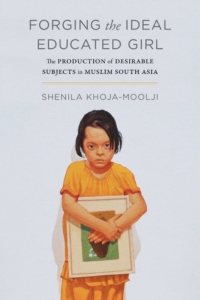 This is the last episode in our four-part series leading up to the CIES 2017 Symposium. In the past three episodes, we have talked about decolonizing knowledge and innovating comparative and international education primarily from within the USA. But what does decolonization look like in other countries?
This is the last episode in our four-part series leading up to the CIES 2017 Symposium. In the past three episodes, we have talked about decolonizing knowledge and innovating comparative and international education primarily from within the USA. But what does decolonization look like in other countries?
Today we focus on Pakistan. My guest is Shenila Khoja-Moolji. She researches and writes about the interplay of gender, race, religion, and power in transnational contexts. In the May 2017 supplement of the Comparative Education Review, she wrote an article on teacher professional development in Pakistan.
Shenila has also learned to navigate the difficult and at times imperial terrain of international education development.
Shenila Khoja-Moolji is currently a visiting scholar at the Alice Paul Center for Research on Gender, Sexuality and Women at the University of Pennsylvania and the author of Forging the Ideal Educated Girl, which will be published by the University of California Press in June 2018.
Citation: Khoja-Moolji, Shenila, interview with Will Brehm, FreshEd, 92, podcast audio, October 23, 2017. https://www.freshedpodcast.com/shenila-khoja-moolji/
Transcript, translation, resources:
Decolonizing Teacher Training in Pakistan

